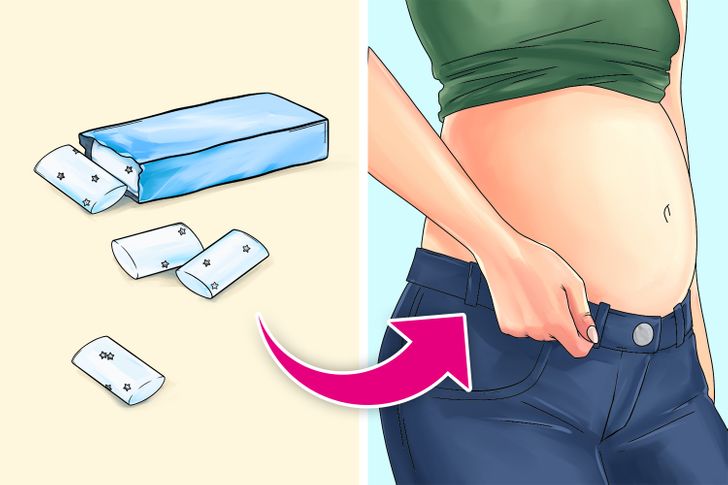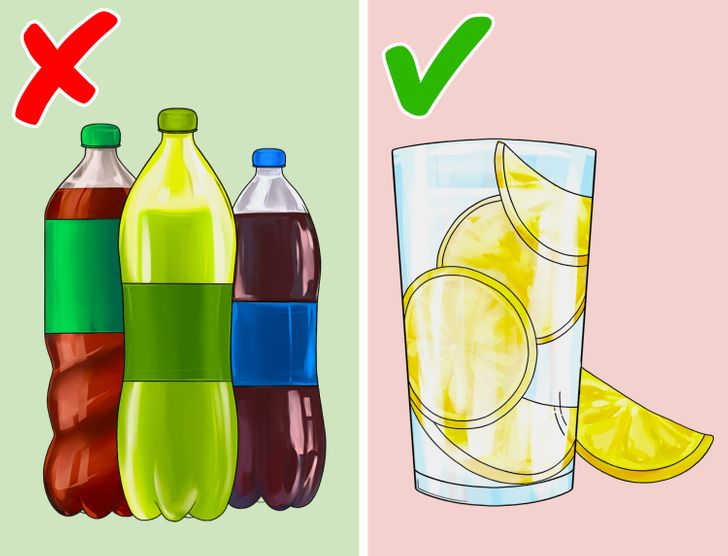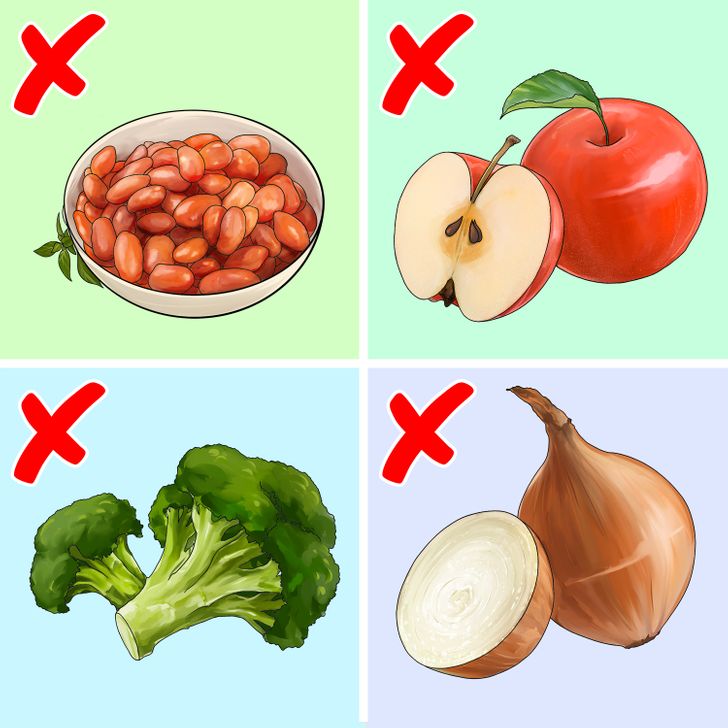Bloating refers to a feeling of fullness, tightness, or swelling in the abdomen, often accompanied by an increase in abdominal girth. It is a common symptom that can occur due to a variety of reasons, including excess gas production, water retention, and inflammation.
Bloating is a common problem because it can be caused by many factors, including overeating, swallowing air, food intolerances or sensitivities, constipation, hormonal changes, and certain medical conditions.
Additionally, the modern lifestyle and diet, which often includes processed and high-fat foods, can also contribute to the prevalence of bloating. Bloating can be uncomfortable and bothersome, and it can interfere with daily activities and quality of life. Therefore, it is important to understand the causes and remedies for bloating to reduce its impact on health and well-being.
Causes of Bloating

Yes, those are some of the most common causes of bloating. Here is some additional information about each of these causes:
Overeating: Eating too much food at once can cause the stomach to stretch and create a feeling of fullness and discomfort.
Swallowing air: People who eat or drink quickly, chew gum, or smoke can swallow air, which can accumulate in the digestive tract and cause bloating.
Food intolerance or sensitivities: Certain foods, such as lactose or gluten, can be difficult to digest for some people, leading to bloating and other digestive symptoms.
Constipation: When stool accumulates in the colon, it can cause bloating and discomfort.
Hormonal changes: Fluctuations in hormone levels, such as during menstruation or menopause, can cause water retention and bloating.
Medical conditions: Certain medical conditions, such as irritable bowel syndrome (IBS), celiac disease, inflammatory bowel disease (IBD), and gastroparesis, can cause bloating as a symptom. Other conditions, such as liver or kidney disease, can also lead to bloating due to fluid retention.

Symptoms of Bloating
Yes, those are some of the most common symptoms of bloating. Here is some additional information about each of these symptoms:
Abdominal distension: This refers to a visible or palpable increase in the size or circumference of the abdomen, which can make clothes feel tight and uncomfortable.
Gas and flatulence: Bloating can cause excess gas to accumulate in the digestive tract, leading to frequent burping or passing gas.
Belching: Burping is a common symptom of bloating, as it can help release the excess gas that has accumulated in the stomach.
Abdominal discomfort or pain: Bloating can cause a feeling of fullness, tightness, or pressure in the abdomen, which can be uncomfortable or painful. This discomfort may be accompanied by cramping, nausea, or vomiting in some cases.
It is important to note that these symptoms may be caused by other digestive or medical conditions, so it is always a good idea to consult with a healthcare provider if they are persistent or severe.
Tips for Reducing Bloating
Yes, those are some of the most effective tips for reducing bloating. Here is some additional information about each of these tips:

Eat smaller meals more frequently: Eating smaller, more frequent meals can help prevent overeating and reduce the amount of food in the stomach at one time, which can help reduce bloating.
Chew food slowly and thoroughly: Chewing food slowly and thoroughly can help break down food more efficiently, which can aid digestion and reduce the amount of air swallowed during meals.
Avoid carbonated drinks and chewing gum: Carbonated drinks and chewing gum can cause the accumulation of excess air in the digestive tract, leading to bloating.
Identify and eliminate trigger foods: Keeping a food diary can help identify foods that may be causing bloating or other digestive symptoms. Eliminating or reducing these trigger foods from the diet can help reduce bloating.

Increase fiber intake: Increasing fiber intake can help promote regular bowel movements and prevent constipation, which can contribute to bloating. However, it is important to increase fiber gradually and drink plenty of water to avoid exacerbating bloating.
Stay hydrated: Drinking plenty of water can help prevent constipation and promote regular bowel movements, which can help reduce bloating.
Exercise regularly: Regular exercise can help promote digestion and prevent constipation, which can help reduce bloating. It is important to choose low-impact exercises, such as walking or yoga, to avoid exacerbating bloating.
Natural Remedies for Bloating
Yes, those are some of the most popular natural remedies for bloating. Here is some additional information about each of these remedies:
Peppermint tea: Peppermint tea contains compounds that can help relax the muscles in the digestive tract and reduce bloating. Drinking peppermint tea after meals or when experiencing bloating can provide relief.
Ginger: Ginger has anti-inflammatory properties that can help reduce inflammation in the digestive tract and alleviate bloating. Consuming ginger in the form of tea, supplements, or fresh ginger root can help reduce bloating.
Fennel: Fennel contains compounds that can help relax the muscles in the digestive tract and prevent gas buildup, which can reduce bloating. Consuming fennel in the form of tea, supplements, or raw fennel can help reduce bloating.

Chamomile tea: Chamomile tea has anti-inflammatory properties that can help reduce inflammation in the digestive tract and alleviate bloating. Drinking chamomile tea after meals or when experiencing bloating can provide relief.
Probiotics: Probiotics are beneficial bacteria that can help promote healthy digestion and reduce bloating. Consuming probiotics in the form of supplements or fermented foods, such as yogurt, kefir, or sauerkraut, can help reduce bloating.
It is important to note that these natural remedies may not be effective for everyone, and it is always a good idea to consult with a healthcare provider before trying any new remedies or supplements, especially if you have any medical conditions or are taking medications.
When to Seek Medical Help
Yes, it is important to seek medical help in certain situations related to bloating. Here is some additional information:
- Symptoms are severe or persistent: If bloating is accompanied by severe or persistent symptoms such as abdominal pain, diarrhea, vomiting, or fever, it may be a sign of a more serious medical condition and medical attention should be sought immediately.
- Accompanied by other symptoms: If bloating is accompanied by other symptoms such as unintended weight loss, blood in the stool, or difficulty swallowing, it may be a sign of a more serious medical condition and medical attention should be sought immediately.
- Medical conditions that can cause bloating: Certain medical conditions such as celiac disease, inflammatory bowel disease, or gastroparesis can cause bloating as a symptom. If bloating is a frequent or persistent symptom, it may be a sign of an underlying medical condition that should be evaluated and treated by a healthcare provider.
In general, it is important to pay attention to any changes in digestive symptoms and seek medical attention if symptoms are severe, persistent, or accompanied by other symptoms.
Conclusion
In conclusion, bloating is a common digestive symptom that can be caused by a variety of factors such as overeating, food intolerances, and constipation. There are several tips that can help reduce bloating, including eating smaller meals more frequently, chewing food slowly and thoroughly, avoiding carbonated drinks and chewing gum, identifying and eliminating trigger foods, increasing fiber intake, staying hydrated, and exercising regularly. In addition, natural remedies such as peppermint tea, ginger, fennel, chamomile tea, and probiotics can help alleviate bloating for some people.
However, it is important to seek medical help if bloating is severe or persistent, accompanied by other symptoms, or if there are underlying medical conditions that can cause bloating. It is always a good idea to consult with a healthcare provider if digestive symptoms are frequent or persistent to ensure appropriate evaluation and treatment. By following these tips and seeking medical help when necessary, individuals can effectively manage bloating and improve their digestive health.


